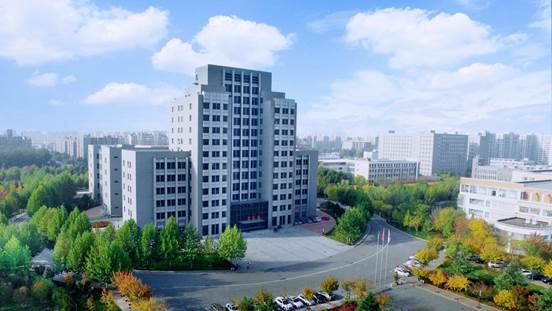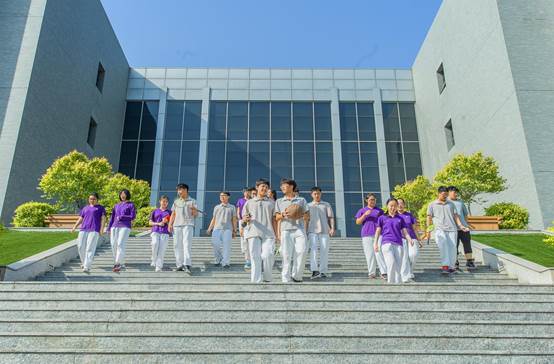
Beijing Polytechnic University
Beijing Polytechnic University, the most renowned vocational university located in southeast Beijing, is the birthplace of high-caliber craftsmen developing skills to serve the country.
Founded in 1958, Beijing Polytechnic University carries forward a nearly 70-year legacy of educational traditions, cultural heritage and industry-education integration from its nationally and municipally recognized predecessors like Beijing Post and Telecommunications School, Beijing First Light Industry School. Seizing development opportunities from China’s vocational education reforms and distinguished by its comprehensive excellence, the university has risen as a leading vocational institution, ranking 6th in the Best Chinese Vocational Colleges Ranking by Shanghai Ranking Consultancy. In February 2025, the university reached a historic milestone when the Ministry of Education approved the establishment of Beijing Polytechnic University, elevating the former Beijing Polytechnic to Beijing’s first publicly funded undergraduate vocational university – opening a new chapter in the capital’s high-quality undergraduate vocational education.

Beijing Polytechnic University remains firmly committed to its vocational education mission. Rooted in industrial needs and dedicated to serving national strategies, it pioneers an innovative modern vocational education model.
Guided by its distinctive educational model which integrates majors with industries, academics with careers, education with employment and practice with production, the university aligns itself with Beijing’s high-tech industry system by providing 6 undergraduate vocational programs, such as Mechanical and Electronic Engineering Technology, Automation Technology and Application and 30 plus diploma programs across seven professional clusters, two of which are recognized as nationally top-tier. The motto “Excellence, Integration, Good, and Innovation" underpins its distinctive "SCI" talent development model which brings together master craftsmen and dual-qualified faculty who hold industry credentials and comprise 93% of the teaching staff. In 2024, the university was rated as excellent in the first Beijing Higher Education Quality Development Assessment for International Students. Students consistently win gold and silver medals at the World Skills Competition, the Challenge Cup Competition, and the Innovation and Entrepreneurship Competition, cementing the university among China’s top-ranked institutions for award achievements.
As the sole higher education institution in the Beijing Economic and Technological Development Area, the university has signed three rounds of comprehensive strategic cooperation agreements with the Area and supports the Area’s ambition to become a world-class high-end industrial hub. It has forged district-specific partnerships (including with Daxing District) through tailored "One district, One Policy" initiatives that precisely address regional industrial needs, and maintains deep, long-term collaboration with 300+ global leaders including Fortune 500 companies such as Beijing Benz. It spearheaded the creation of one of the first national-level city-wide industry-education consortiums - the Beijing Integrated Circuit Industry-Education Consortium, four industry-education integration communities, and eleven industry colleges with enterprises, like Intelligent Connected Vehicles Industry College. It has launched 20-plus enterprise-sponsored “order classes”, accounting for nearly 50% of its programs. The employment rate for its graduates exceeds 98%.
Its faculty lead multiple national and provincial scientific research projects, including projects from National Natural Science Foundation of China, and successively translate lab breakthroughs into industry applications, empowering new quality productive forces with the wisdom of vocational education. Highlights include one National Major Science and Technology Project, one National Key R$D Plan Program, and one National Major Scientific Research Initiative. It partners with leading institutions such as BGI for joint research institutes and innovation labs, and founds three pilot bases in the Beijing Economic and Technological Development Area, including one dedicated to intelligent manufacturing R&D of complex special-shaped components. It opens 10 national and provincial training platforms, like the National Vocational College President Training Base, and forms a "three-in-one" social training model. Over the past five years, it has generated 100 million plus yuan in research and social service revenue.
The university is committed to promoting Chinese vocational education standards globally and has established a Center for Chinese Language and Professional Skills in CITIC Dicastal Morocco and a Chinese Language Learning and Testing Center in Morocco, supporting overseas Chinese enterprises and disseminating Chinese educational resources abroad. Through partnerships with Tunisian universities, it has created a technical skills training base that pioneers an innovative "2+1+1" international talent development model centered on “Chinese language + professional skills”. It also strengthens diverse exchanges and cooperation with countries along the Belt and Road Initiative, like Malaysia and Singapore, enhancing the "Study Beijing" brand.

Looking ahead, Beijing Polytechnic University will remain committed to talent development, cultivating skilled professionals capable of addressing worldwide challenges with global vision and international thinking, fostering integration of technical expertise and professional spirit.
It will harness industry-education integration as the driving force, align with requirements of new-quality productive forces, and establish championship-tier undergraduate vocational programs to serve, support and advance global emerging industries, thereby contributing vocational education’s unique momentum to building a community with a shared future for mankind.
It will leverage integration and openness as wings to transcend disciplinary boundaries, foster cross-sector convergence, consolidate scientific and technological innovation resources, expand social service capabilities, and accelerate the pace of "vocational education going global" to build a more dynamic modern vocational education system and to produce a replicable “Beijing Model” for nationwide undergraduate vocational education.
Though the voyage is long and winds challenging, Beijing Polytechnic University sails forward with resolve. Guided by its "three-step development strategy", it is striding towards the vision: a world-class, high-level skills university of the highest standards with distinctive Chinese characteristics.



 Location:
Location: